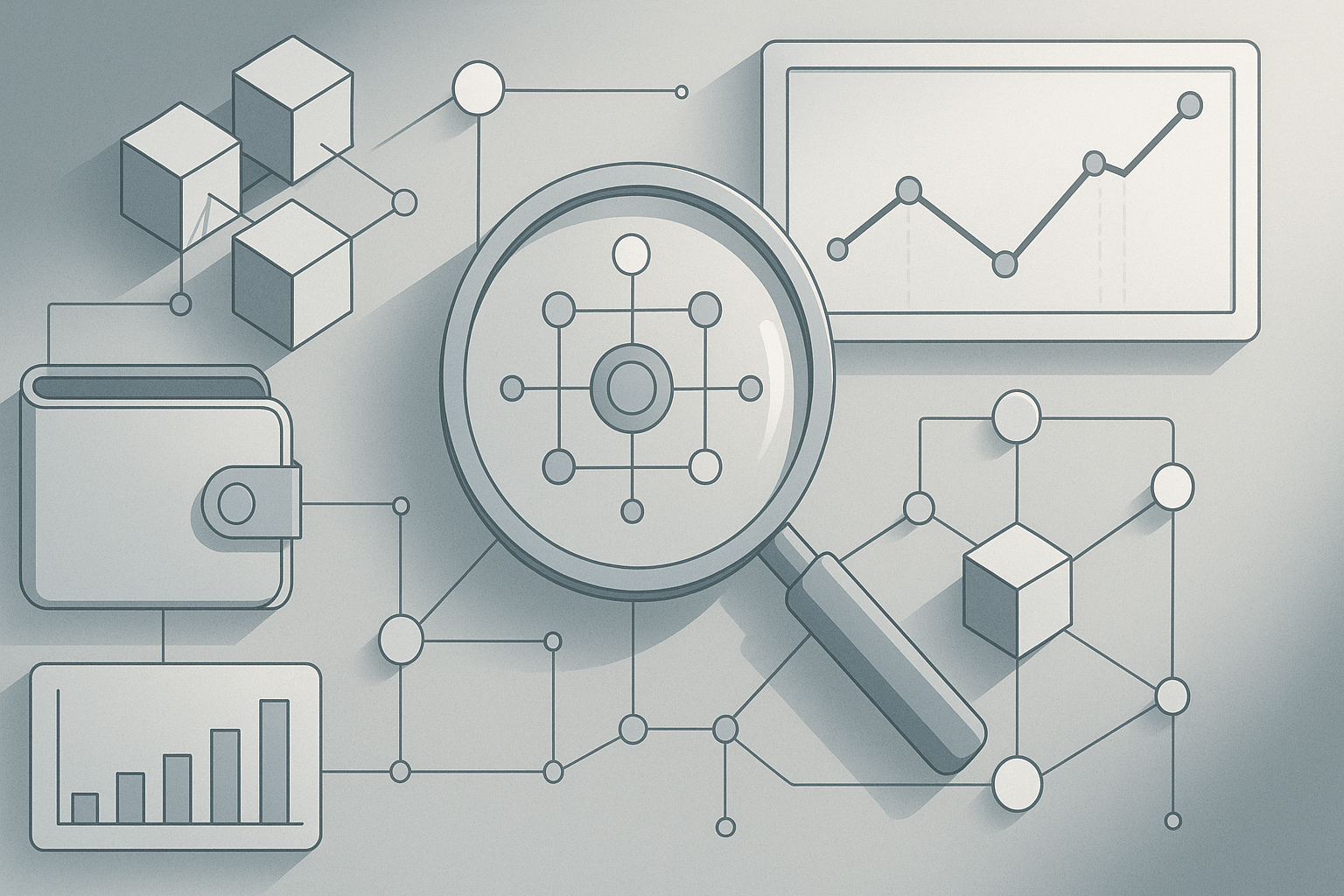Mizu Launchpad arrives as a new effort to let internet domains take a more active role in decentralized finance. The announcement, reported by Business Insider, frames the product as a way to add financial functionality to domain ownership on-chain.
Become a Doc: Profile Ethereum wallets and discover their behavior.
Use WalletAutopsy.
What the announcement says
The company behind the product, D3, described Mizu Launchpad as a platform built on the Doma Protocol that intends to create market access for domain-related assets. The public notice did not present exhaustive technical specifics, but it outlined a goal to enable domain holders to explore fundraising, liquidity and secondary markets that rely on cryptographic proof of ownership.
How the Doma Protocol factors in
The release placed the Doma Protocol at the center of the effort. According to the report, the protocol serves to record and manage domain ownership in a manner compatible with smart contracts, which would allow subsequent applications to reference those records. D3's announcement frames the protocol as the plumbing that makes domain-linked DeFi functions possible, though independent audits or technical papers were not provided in the report.
Practical uses and product intent
The launch communication suggested several potential uses for domain-backed financial instruments. These include mechanisms for raising capital tied to domain assets, tools to provide liquidity for domain ownership, and marketplaces where domain-related tokens could trade. D3 emphasized that the intent is to broaden how domain ownership can be represented and transacted without relying on traditional intermediaries.
Market mechanics and open questions
The announcement left operational details open. It did not list exact token standards, custody models, or how valuation for domain assets would be set. Observers will look for documentation showing how the project will link off-chain registries, handle disputes, and integrate with existing naming systems. Those technical answers will matter for institutional adoption and regulatory scrutiny.
Security and legal considerations
Introducing financial services tied to identifiers such as domain names raises security and legal questions. The report noted that D3 plans to use smart contracts to automate transactions, but it did not disclose audit outcomes. Stakeholders will need to examine how the platform intends to mitigate fraud, prevent unauthorized transfers, and comply with jurisdictional rules governing digital property and financial instruments.
Implications for crypto wallets and user access
Wallet providers are likely to consider how to present domain-backed assets inside their interfaces. Integration will require wallet software to recognize the tokenization approach adopted by Mizu Launchpad and to display ownership metadata, transaction histories, and any governance rights attached to domain tokens. These integrations will affect how easily individuals move funds and exercise control over domain-linked positions.
Role for crypto analytics
Analytical tools will take on a new role as domain assets begin to trade. Firms offering crypto analytics can help surface liquidity, track pricing, and flag anomalous activity related to domain tokens. Market participants will depend on those signals to assess counterparty risk, price discovery, and the health of secondary markets built around domain ownership.
Potential market participants
The kinds of buyers and sellers that might engage with domain-backed instruments include existing domain investors, digital asset traders, and developers who build services that depend on named resources. The project could attract speculators as well as parties seeking to monetize a portfolio of domain names. The breadth of participation will depend on the clarity of terms and the smoothness of on-chain operations.
Why verification matters
Verification of ownership and provenance will determine much of this effort's credibility. Market actors will want proof that a given token represents a clear and enforceable claim on a domain. The plan reported by Business Insider relies on cryptographic links between domains and smart-contract records, but independent verification and transparent governance will be needed for wide acceptance.
Regulatory signals to watch
Regulators have shown heightened interest in tokenized assets and markets that resemble securities or derivatives. The announcement did not include a legal framework for how D3 intends to treat compliance across jurisdictions. Observers should watch for filings, policy statements, or partnership disclosures that clarify how the platform will address anti-money laundering and securities concerns.
What the next steps look like
Expect the community to ask for technical documentation, smart contract code, and independent audits before committing significant capital. D3's timeline for public launches, testnets, or pilot programs will influence market reaction. Clear developer guides and wallet integrations would help adoption, and reputable analytics providers can accelerate trust by monitoring early activity.
Conclusion
The Mizu Launchpad announcement positions domain names as potential participants in decentralized finance by using the Doma Protocol to anchor ownership on-chain. Business Insider's report framed this as an attempt to open new forms of market activity for internet domains, but the long-term outcome will depend on technical clarity, security governance, and regulatory alignment. Observers and market participants should track audits, integration roadmaps, and the first live transactions to evaluate whether domain-backed DeFi attracts substantive liquidity.
